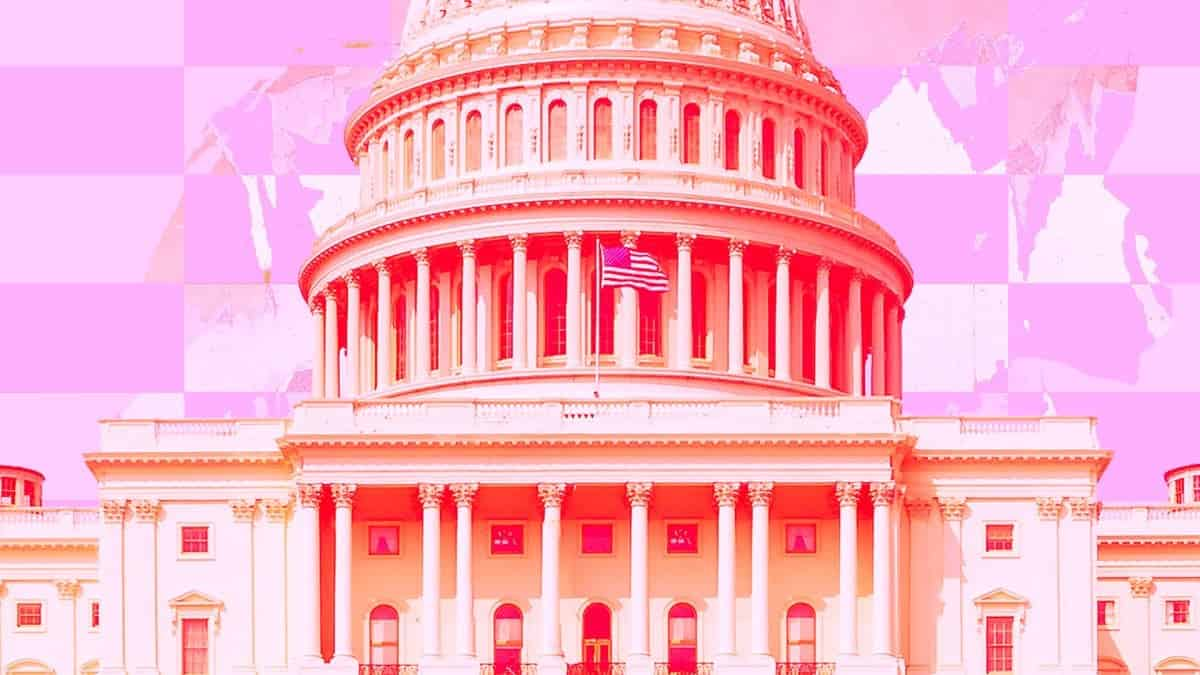Banks may limit crypto exposure without clear anti-money laundering rules in place: TD Cowen
Quick Take Anti-money laundering will still be top of mind for banks given potential consequences, TD Cowen said in a note. “It is why we believe the controversy over debanking of crypto entities is unlikely to end just because there are new regulators with new policies,” TD Cowen said on Monday. Lawmakers will hold two congressional hearings this week to discuss debanking.

Banks will limit their crypto exposure as long as anti-money laundering risks are at play, according to investment bank TD Cowen.
"We believe greater crypto clarity could entice banks to act as crypto custodians, but banks will still want legal clarity given the severe liability banks face if they do not stop money laundering, terrorist financing or sanctions evasion," TD Cowen's Washington Research Group, led by Jaret Seiberg, wrote in a note on Monday.
Congress will hold two hearings this week focused on debanking — one in the Senate Banking Committee on Wednesday and another in the House Financial Services Committee on Thursday. During one of those hearings, requirements tied to banks and crypto, from regulators such as the Office of the Comptroller of the Currency, could come up, Seiberg said.
Crypto debanking came back into the spotlight in Washington following lawmakers' calls for investigations and increased criticism from crypto firms who say they face challenges when looking to establish and maintain bank accounts in the U.S. Following the collapse of crypto exchange FTX in late 2022, several governmental agencies, including the Federal Reserve and the OCC, issued warnings on " crypto-asset risks ."
The OCC could decide to take back requiring banks to get approval before engaging in certain crypto-related activities, Seiberg said.
"We believe that is a mistake," Seiberg said. "Our view is that banks will limit crypto exposure as long as there is AML/BSA [Bank Secrecy Act] risk associated with holding and trading crypto assets. The penalties for AML/BSA violations are too high to make it worthwhile for banks to broadly service the crypto sector without greater clarity."
AML concerns could also tamp down banks' enthusiasm to issue stablecoins since banks could have concerns that they are responsible if those stablecoins are used by bad actors, Seiberg said.
"It is why we believe the controversy over debanking of crypto entities is unlikely to end just because there are new regulators with new policies," Seiberg said. "It will take a broad overhaul of AML/BSA rules for banks to be comfortable that tokens were not at some point tied to illicit activity."
And that will need an act of Congress, Seiberg added.
Crypto debanking allegations
The issue around crypto and debanking has gone on for a few years.
In 2023, Castle Island Ventures co-founder Nic Carter coined the phrase "Operation Choke Point 2.0" to describe the alleged crackdown coordinated by government agencies. The phrase is a reference to the Obama-era "Operation Choke Point," a U.S. Department of Justice initiative that sought to limit banking services for industries considered high-risk for fraud and money laundering, including payday lenders and firearm dealers.
Then last year, Coinbase lodged a lawsuit against the Federal Deposit Insurance Corporation, through consultant firm History Associates, for allegedly cutting off the crypto industry from the banking sector. The FDIC has said that "banking organizations are neither prohibited nor discouraged from providing banking services to customers of any specific class or type, as permitted by law or regulation."
Big bank CEOs have also recently opened up about their struggles with crypto. JPMorgan Chase's Jamie Dimon said on a recent podcast that his bank works with a few crypto firms but is at risk of paying millions of dollars in fines if something were to go wrong.
Federal Reserve Chair Jerome Powell last week said banks can serve crypto customers as long as they can manage the risk when asked about risks associated with crypto.
Disclaimer: The content of this article solely reflects the author's opinion and does not represent the platform in any capacity. This article is not intended to serve as a reference for making investment decisions.
You may also like
[Initial Listing] Bitget Will List PrompTale AI (TALE). Come and grab a share of 3,480,000 TALE
New spot margin trading pair — LA/USDT!
AINUSDT now launched for futures trading and trading bots
Bitget releases June 2025 Protection Fund Valuation Report
